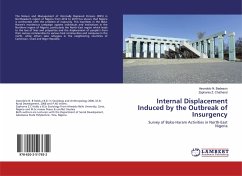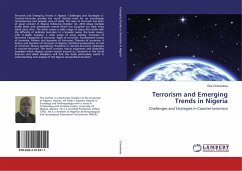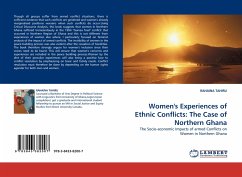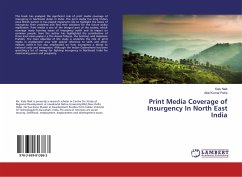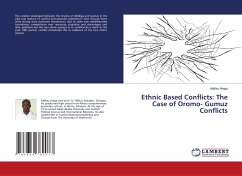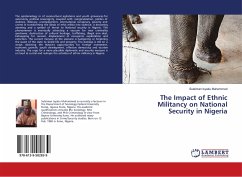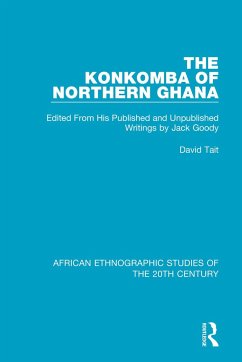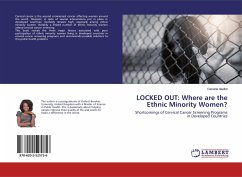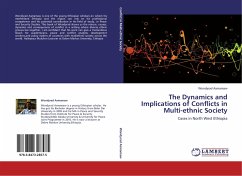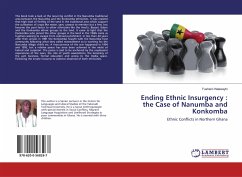
Ending Ethnic Insurgency : the Case of Nanumba and Konkomba
Ethnic Conflicts in Northern Ghana
Versandkostenfrei!
Versandfertig in 6-10 Tagen
27,99 €
inkl. MwSt.

PAYBACK Punkte
14 °P sammeln!
This book took a look at the recurring conflict in the Nanumba traditional area between the Nanumba and the Konkomba ethnicities. It was realized that high level of fertility of the land in the traditional area which support the cultivation of crops like maize, yam, cassava to mention but a few, has become the pool factor to other ethnicities like the Anufu, Bassari, Kabre and the Konkomba ethnic groups to the land. It came to light that the Konkomba who joined the other groups in the land in the 1940s came as fugitives seeking to escape from colonial punishment. In less than 40 years after th...
This book took a look at the recurring conflict in the Nanumba traditional area between the Nanumba and the Konkomba ethnicities. It was realized that high level of fertility of the land in the traditional area which support the cultivation of crops like maize, yam, cassava to mention but a few, has become the pool factor to other ethnicities like the Anufu, Bassari, Kabre and the Konkomba ethnic groups to the land. It came to light that the Konkomba who joined the other groups in the land in the 1940s came as fugitives seeking to escape from colonial punishment. In less than 40 years after their arrival, in 1981 the Konkomba fought with the Nanumba host community following what they called mistreatment as in working for the Nanumba village chiefs etc. A reoccurrence of the war happened in 1994 and 1995, but a relative peace has since been achieved in the midst of hatred and suspicion. The peace is said to be anchored by the unpleasant experiences of the wars, the role of youth associations, the booming of the yam business, formal education and access to the media space. Following the innate recourse to violence observed of both ethnicities.



